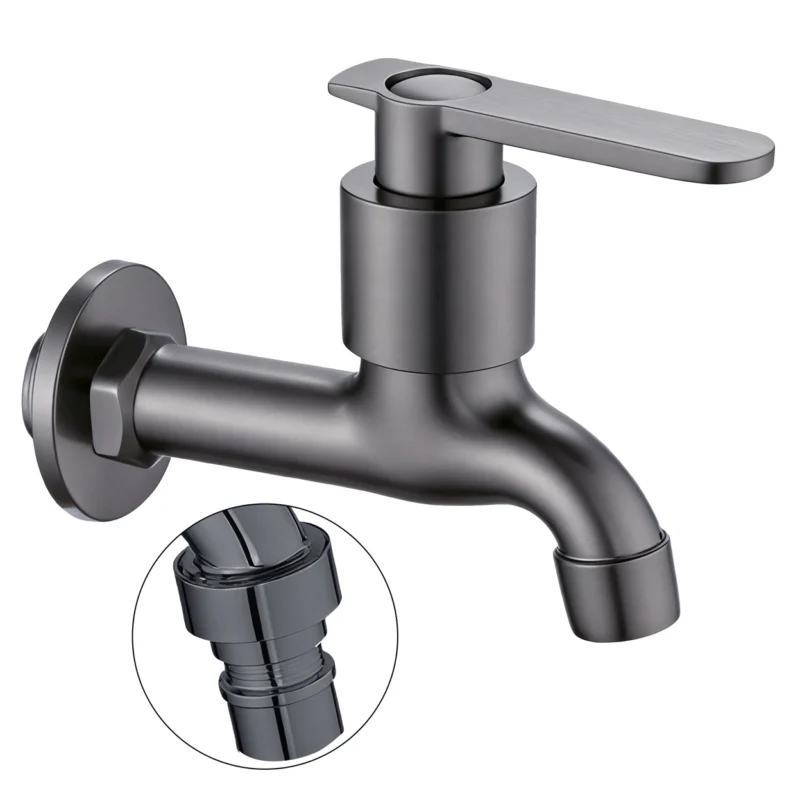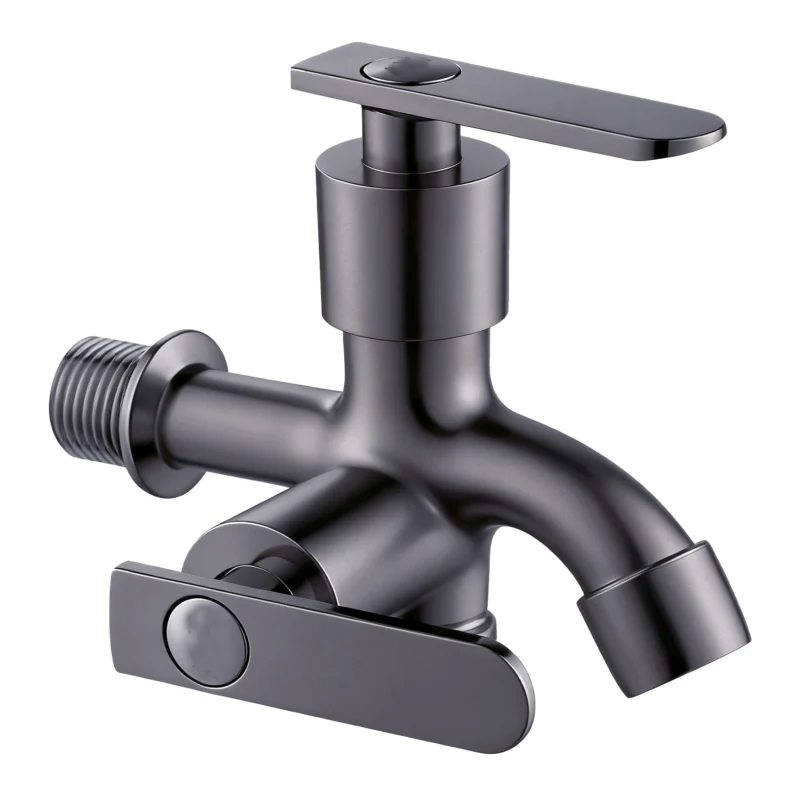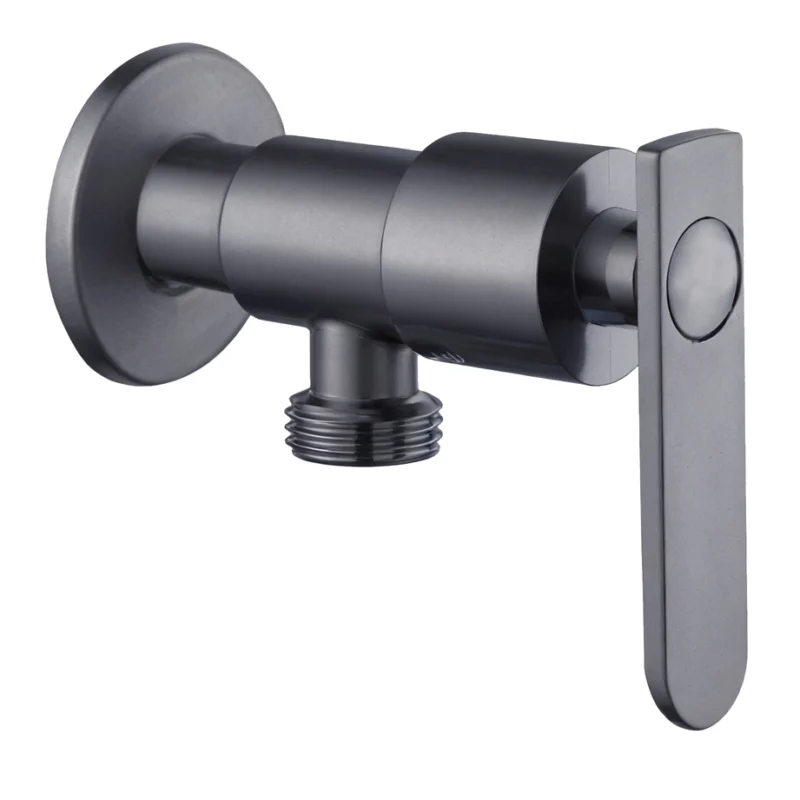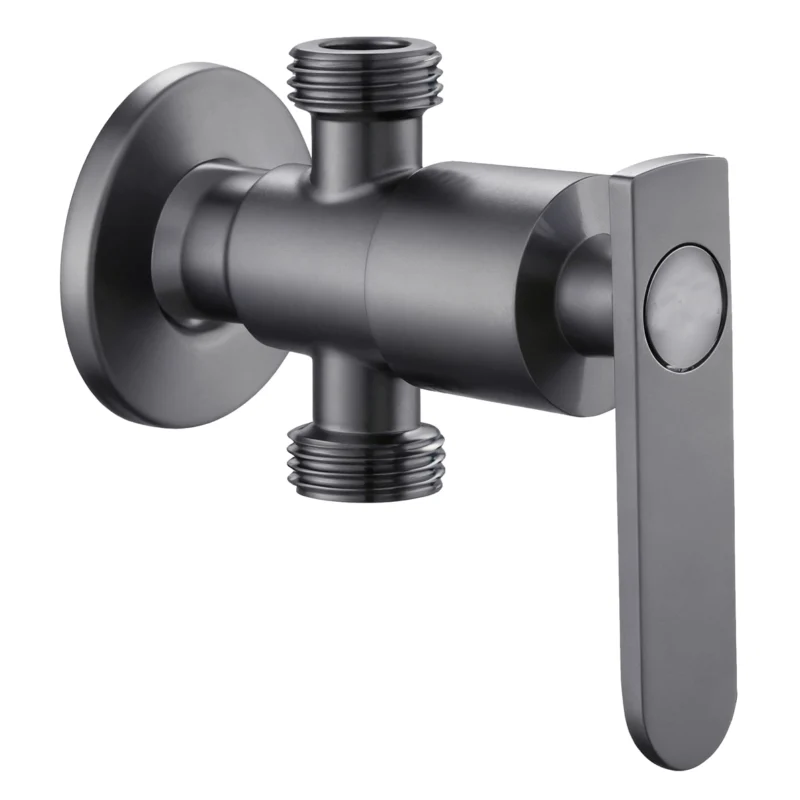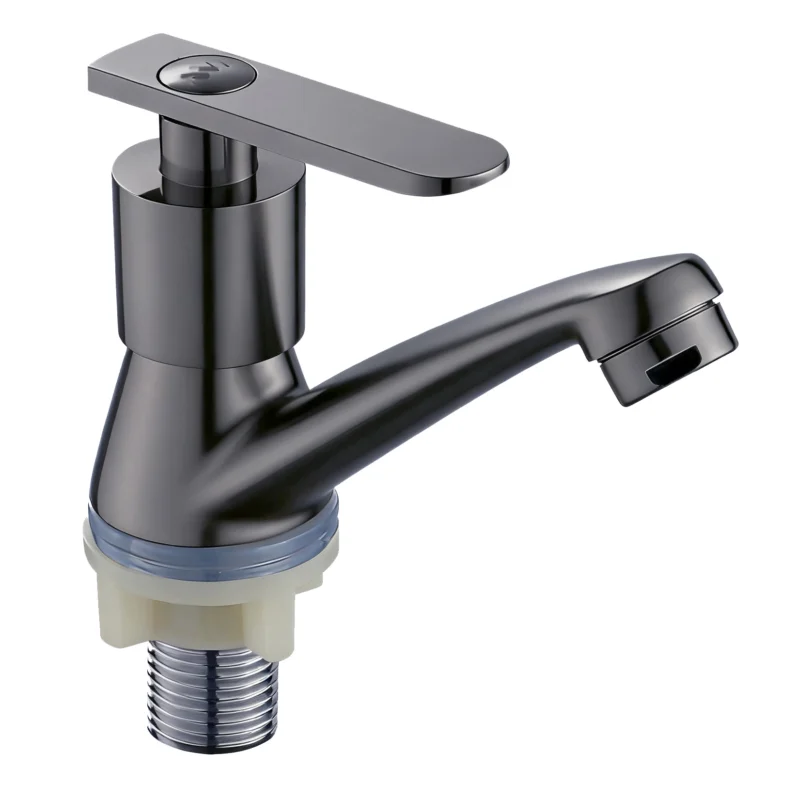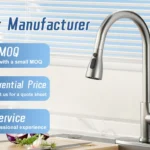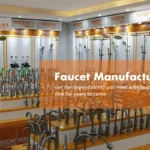In the wave of iterative upgrades in the global bathroom industry, consumer demand for kitchen faucets is undergoing a structural transformation. The stainless steel matte black rotatable kitchen tap, with its unique aesthetic design and outstanding performance, has rapidly gained a competitive edge in the market. As a major production hub for bathroom products worldwide, Fábricas chinas de grifería, relying on a complete industrial chain and continuous technological innovation, have established significant competitive advantages in the production of single-cold sink faucets, supplying high-quality products to the global market.

(I) Increasing Requirements of the Global Bathroom Market for Faucet Quality and Design
With the evolution of consumption concepts and the pursuit of higher living standards, modern consumers’ demands for kitchen faucets have shifted from basic functionality to quality and personalization. In terms of quality, products are expected to have excellent durability, corrosion resistance, and water-saving efficiency. In terms of design, faucets with sleek lines, personalized color schemes, and innovative structural designs are more appealing. The stainless steel matte black rotatable kitchen tap, with high-quality stainless steel as the base material and a unique matte black coating process, not only meets the practical needs of corrosion resistance and easy cleaning but also enhances the overall style of the kitchen through its fashionable appearance. The rotatable design effectively addresses the operational challenges in large-scale cleaning scenarios, precisely meeting the diverse needs of contemporary home life.
(II) Factory Overview
Chinese faucet factories have achieved large-scale and modernized production through years of industry experience. Standardized production bases are equipped with advanced manufacturing equipment and professional technical teams, and production workshops operate in strict accordance with the ISO quality management system. A complete vertical production chain has been established, covering product research and development, mold design, and finished product assembly. Through continuous technological investment and process optimization, these factories not only ensure high production efficiency but also maintain excellent product quality and delivery timeliness. Their products are exported to numerous countries and regions across Europe, America, and the Asia-Pacific, making them important OEM/ODM partners for international bathroom brands.
(III) Intelligent Layout and One-Stop Process
To adapt to the trend of intelligent manufacturing, factories have actively promoted full-process digital transformation. The intelligent warehousing system uses RFID technology to achieve precise positioning and dynamic management of raw materials and finished products, increasing inventory turnover by over 30%. Automated production lines and industrial robots are introduced in the production process, enabling unmanned operations from stainless steel sheet feeding, cutting, to component stamping, welding, and assembly. The central control system based on the MES (Manufacturing Execution System) monitors production progress, equipment status, and quality parameters in real-time, ensuring seamless integration of all processes and keeping the product defect rate below 0.3%, significantly improving production efficiency and manufacturing precision.
(IV) Key Production Processes and Equipment
The production of stainless steel matte black rotatable kitchen taps integrates multiple core technologies. In the material processing stage, fiber laser cutting machines are used for high-precision cutting of 304 stainless steel sheets, with a cutting accuracy of ±0.1mm, ensuring dimensional consistency of components. CNC stamping equipment forms the main structure of the faucet through mold technology, and argon arc welding achieves seamless splicing, effectively enhancing the structural strength and sealing performance of the product. In the surface treatment process, the unique matte black coating process involves multiple steps: first, sandblasting treatment to enhance surface adhesion, followed by electrostatic powder spraying for uniform coating application, and finally, high-temperature curing at 200°C to form a dense coating with a thickness of 80 – 100μm, providing excellent wear resistance, stain resistance, and visual appeal.
(V) Intelligent Management System
Factories have established an intelligent management system covering the entire business process. The production management system optimizes order scheduling, material distribution, and equipment allocation through data collection and analysis. The quality monitoring system is equipped with online inspection devices, using machine vision technology for 100% full inspection of product appearance and dimensions. Professional equipment such as pressure testing machines and salt spray test chambers are used to rigorously test the sealing and corrosion resistance of faucets. The logistics tracking system is integrated with the global logistics network, allowing customers to query product transportation status in real-time through order numbers, ensuring transparent management from production to delivery.
(VI) Quality Control Process
Quality control is implemented throughout the product life cycle. Upon raw material arrival, spectrometers are used to strictly detect the composition of stainless steel, ensuring that key elements such as nickel and chromium meet the standards. During production, multiple in-process inspection points are set up to sample-check parameters such as component dimensions, welding quality, and coating adhesion. In the finished product stage, a stringent full inspection is carried out, covering more than 20 indicators including water flow testing, sealing performance testing, and rotation life testing. All products must pass ISO 9001 quality management system certification and international authoritative institution testing before being allowed to leave the factory.
(VII) Employees and Training
High-quality talent is the core driving force for enterprise innovation and development. Factories have established a hierarchical and classified training system, providing standardized operation training and skill level certification for frontline operators, and regularly organizing technical competitions to improve practical skills. Technical research and development and management personnel are offered training courses on cutting-edge industry technologies and management, and are encouraged to participate in industry-university-research cooperation projects. Through a sound performance evaluation and promotion mechanism, employees’ innovative vitality is stimulated, forming an enterprise culture centered on technology and quality.
(VIII) Customer and Order Services
To meet customers’ differentiated needs, factories offer customized solutions, allowing customization of product appearance, functional configuration, and packaging design. A rapid-response customer service mechanism has been established, with professional project management teams providing one-stop services from order confirmation, production tracking, to after-sales maintenance. The ERP system enables digital management of the entire order process, ensuring an order delivery on-time rate of over 98%. Meanwhile, a global after-sales service network has been established, combining online technical support with offline service outlets to provide customers with timely and efficient after-sales support.
(IX) Outlook on Future Industry Trends
Looking ahead, the bathroom industry will accelerate its development towards intelligence, greenness, and scenario-based applications. Chinese faucet factories will continue to increase R&D investment, explore the application of new materials, intelligent water-saving technologies, and the integration of IoT technology, and develop smart faucet products with features such as sensor control and water quality monitoring. At the same time, adhering to the concept of green manufacturing, factories will optimize production processes to reduce energy consumption and emissions, promoting environmental upgrades throughout the product life cycle. Through technological innovation, they aim to lead the high-quality development of products such as stainless steel matte black rotatable kitchen taps in the global market.

